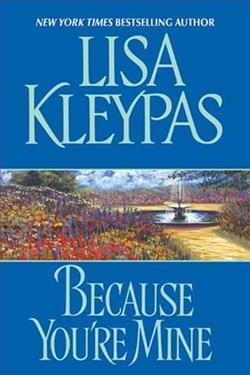Page 22 of Those Fatal Flowers
“Ladies, we have a special guest today,” Emme says, fanning her arms out to present the group to me. “Please introduce yourselves.”
A woman seated at a small wooden table speaks first. Another baby is in her arms, sleeping peacefully, nestled in her mother’s embrace. An emotion I can’t quite identify claws at my heart.
“I am Elyoner,” she says, “and this is my daughter, Virginia.”
The rest of the ladies follow her lead. There’s Wenefrid, the group’s oldest member, with wiry graying hair, and a second Elizabeth whom everyone calls Liz. A woman named Margaret rivals Wenefrid in old age, and the two could easily be confused if Margaret weren’t missing one of her front teeth, though this doesn’t stop her from smiling widely. And then there are Rose, the same girl who poured wine at the welcome feast, and Jane, both as young as I was when Scopuli became my prison. A mousy, timid woman introduces herself last as Alis. The name catches my attention.
“Alis Chapman? Is your husband the one who found me?”
The woman’s face turns a deep scarlet. “Yes, my lady.”
I take off a pair of gold earrings and place them in her palms. “It’s not much, but please thank him for me. I would have frozen if he hadn’t gotten aid.”
The act makes Alis blush harder. “Oh, my lady, I couldn’t—”
I close her fingers around the jewelry. The other women watch with their eyes wide.
“Accept the gift, Alis, please,” Cora urges. “John did a good thing, and God wants you to be rewarded for it.”
Alis fiddles with the earrings but eventually slips them into her pocket. “Thank you, Lady Thelia.”
“Well, then,” Margaret says, the words whistling through the gap in her teeth. “Shall we?”
Emme points to a large leather-bound tome on a small table beside her bed. Cora clears her throat as Wenefrid hands it to her.
“Slow down, Cora. You’re forgetting the most important part.” A devious grin lights up Emme’s face. The others start laughing, and Cora smirks.
“Go on, then.”
Emme pulls a large crock from a shelf beside the hearth, pausing only to wiggle her fingers gleefully before dividing its contents into mugs for us all.
As Emme prepares the libations, my attention returns to the book in Cora’s lap. This must be the Bible that she mentioned earlier. Cora’s fingers graze the cover gingerly before she teases it open to the first page. The paper is delicate, like a butterfly’s wings.
Cora catches me watching her, and our eyes lock. Her stare is intense, searching, and it strikes me that she’s trying to discern if I recognize the book. I smile, hoping to encourage her that I do. The way she handles it shows how important it is to her, and the fact that these readings occur weekly suggests that she’s not alone in revering it. She smiles faintly in return. It’s a far cry from her spontaneous laughter on the beach, but it’s an improvement. As Emme passes around the wine, Cora clears her throat once more.
“Let’s start at the beginning. It’s been a long time since we read about the creation.”
“I love Genesis,” Rose says on a sigh, resting her head in her palm as her focus settles onto Cora.
“Reader’s choice,” says Margaret with a shrug, and all the other ladies laugh. Ah, yes. Cora is the only one who knows how to read.
“In the beginning God created the heaven and the earth. And the earth was without form and void, and darkness wasupon the deep, and the Spirit of God moved upon the waters…”
It’s always strange listening to mortals recount their origins—which details they get right, and which they get wrong, though even I don’t know the whole truth. No one does. The memory of the gods isn’t infallible, as old as they are, and many are happy to embellish the details of their histories to willing ears. Still, though, I crack a smile, ready to lose myself in the familiar.
“Then God said, Let there be light: And there was light. And God saw the light that it was good, and God separated the light from the darkness. And God called the Light, Day, and the darkness he called Night. So the evening and the morning were the first day.”
My smile fades. There’s no familiarity to be found here after all. Only a single god? How could that be, when I’ve played in the woods with dryads? When our fathers, though lesser, were gods in their own right?
I served ambrosia to the Goddess of the Harvest. I kissed the lips of the Goddess of Spring, and I lost her to the God of the Dead.
Cora’s brows knead together in concentration, and a flush crawls up her neck. She’s enraptured by what she’s reading; she believes it, every last lie, and so do the rest of the women in the room.
When her god creates man from dust and breathes a living soul into his body, I resist asking how he obtained the ability to grant life in the first place. Did he steal it from a goddess lost to time? Why choose to make a man first, when a woman could have birthed her own children of flesh and blood?
Because he, too, is a man.
So where are the goddesses?















